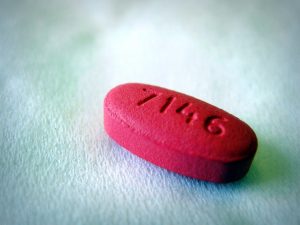The first antibiotic was discovered accidentally by Scottish physician Alexander Fleming when he noticed that mold killed bacteria in a petri dish. The compound derived from that mold would eventually become known as penicillin, a medication now prescribed the world over.
But even Fleming put forth some caution about his discovery’s use: he said to give it only for known infections and to take it for the right amount of time. He’d noticed that if it was given for too little time, bacteria easily developed resistance to the penicillin, rendering it useless. Current medical practice agrees wholeheartedly with Fleming. Antibiotics should be used sparingly to prevent the formation of a “super bug” resistant to all known types of antibiotics.
But there’s another reason to limit your use of antibiotics. Some sobering recent research suggests that a single course of antibiotics can alter the makeup of your gut microbiome (the bacteria designed to live in your digestive system) for months, and in some cases, permanently. This isn’t something you’d necessarily feel right away, like the vomiting or diarrhea that can come as side effects of some antibiotics. Those side effects usually go away once you’re finished with the antibiotic. Instead, this is something that could affect your overall health over time. Let’s take a look.
Research is showing more and more that the gut microbiome is involved in more than just digesting our food. There are connections between the gut and mental health, immune health, metabolism, and weight gain, to name a few. The gut microbiome could even play a part in the development of diabetes or heart disease. This is an area of active research and new things are discovered all the time.
So, if the gut is so important to our health, but antibiotics disrupt it, what should we do? Should we ever take antibiotics?
Well, it depends.
If you have something that is likely viral in origin, such as a cold or the flu, antibiotics won’t help. That’s because antibiotics kill bacteria, not viruses. Even so, we often rush into the doctor’s because we feel so yucky. Of course, if you have the flu, there are some antiviral medications which may shorten the length of time you have symptoms, though these are not considered curative. Unfortunately, there is nothing similar for the myriad of viruses that cause what we experience as the common cold. A viral illness can last 7-14 days, which is a long time to feel bad. But you can help your body fight it off more quickly if you get some extra rest, drink plenty of fluids to avoid dehydration, and take some over the counter cold medication for symptom relief. Acetaminophen and ibuprofen can help with headaches and general body aches, as well as fever.
If your doctor thinks you have a bacterial illness, you may need antibiotics to help your body fight it off. Then, it’s important to remember what Fleming said when he first discovered antibiotics. You should take them exactly as the prescription label instructs and for the entire length of time prescribed, even if you feel better before the course is finished. No saving some for a rainy day. No giving some to your friend who has the same thing.
Most of us will need antibiotics at some point over the course of our lives. If you have to take antibiotics, what should you do to help your gut microbiome gets back to its healthy state?
The good news is, the research shows that probiotics can be very helpful in reversing this. A natural way to get probiotics in your diet is to eat more yogurt. Fruits and vegetables also contain compounds that nourish the bacteria in your gut. Why not combine all of into a natural dessert or a smoothie? Mmmm.
Bottom line: good nutrition helps your gut stay healthy, even if you need antibiotics to fight off an infection. Research is showing more and more that a healthy gut makes for a healthy you!


Share This